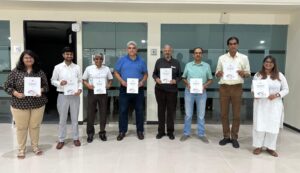AICTE initiative: Engineering colleges to offer exams in local languages alongside English

AICTE initiative: Engineering colleges to offer exams in local languages alongside English (Representational Image)
The All India Council for Technical Education (AICTE) has announced a groundbreaking initiative to introduce bilingual examination papers in engineering colleges across India. The move aims to support regional students by allowing them to take exams in both English and their local language. This initiative aligns with the principles outlined in the National Education Policy (NEP) 2020, emphasizing the importance of the mother tongue in education.
The directive from AICTE mandates technical universities to prepare examination papers in English as well as the local language, enabling students from diverse linguistic backgrounds to better understand and excel in their studies. Rajive Kumar, member secretary of AICTE, emphasized that this step aims to bridge the gap and build confidence among students who may face initial difficulties due to language barriers.
The initiative also extends to classroom communication, with teachers encouraged to use local languages when interacting with students.
While the use of English has been common in technical education, AICTE clarifies that there is no rule mandating English as the medium of instruction. Instead, the focus is on providing flexibility and accommodating students’ linguistic preferences.
To facilitate the implementation of bilingual examinations, AICTE has introduced Anuvadini, a voice and document AI translation tool, to assist universities in translating examination papers. Additionally, the council has allocated additional seats for undergraduate and diploma engineering courses conducted in regional languages.
While the initiative has received praise for enhancing inclusivity in technical education, challenges such as ensuring accurate translation of technical terms and maintaining consistency in assessment across different languages remain. However, proponents believe that the benefits of offering exams in local languages, including improved comprehension and confidence among students, outweigh the challenges.
Overall, the AICTE initiative represents a significant step towards promoting linguistic diversity and accessibility in engineering education, reflecting India’s commitment to inclusive and equitable learning opportunities.









